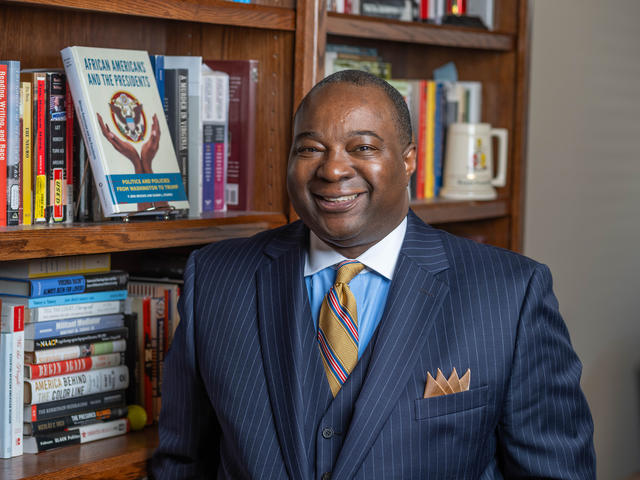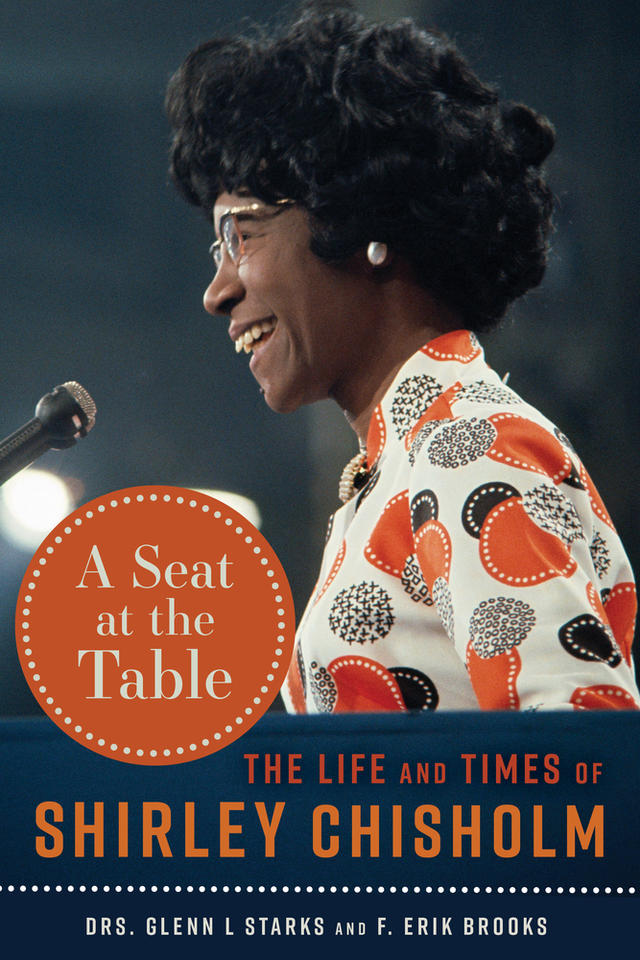
Provost’s Corner: A look back on the first African American woman to run for President


As we celebrate Black History Month this February and prepare to vote in the 2024 presidential election in November, we should take time to celebrate Shirley Chisholm, a courageous Black political figure.
Chisholm was the first African American woman elected to Congress (1968) and the first African American to make a serious run for President of the United States (1972). She made history for her political runs and for the actions she took while in office. Her achievements in breaking down racial and gender barriers have opened the door for so many who have followed, including the minorities and women of all races who could then achieve political success.
Chisholm set the stage for future Black women to hold public office. In 2020, Kamala Harris became the first African American woman to be nominated as the Democratic Vice-Presidential candidate of the United States. In speeches, Harris credited Chisholm as a motivating force for her political success. While Chisholm did not win the nomination and ultimately lost the Democratic Party nomination to George McGovern — who lost the general election to Republican and eventual President Richard M. Nixon — she set the stage for African American women in politics.
What is most notable about Chisholm was her ability to attain such success during a time when both Black people and women in this country faced racial and gender discrimination. She not only faced this discrimination from whites, and particularly white males, but also from Black males. Yet she persevered by being steadfast in her political convictions and unwilling to compromise on the issues she believed in. She was undaunted and not afraid to demand political equality when she was being treated unfairly while in office.
Even though it has been over 50 years since Chisholm’s historic campaign run, many of the remnants of her political message and campaign can still be seen in modern men and women minority candidates.
During her time, there were few females and Black elected officials in office, and they knew they could not challenge the political establishment. If they did, they faced the wrath of being voted out of office. Chisholm was courageous in challenging the establishment and galvanizing women and minorities in her district in Brooklyn, New York, and across the entire country. Chisholm was unapologetic in her demeanor and approach to supporting the issues for which she was unwavering in her conviction. Throughout her life, she focused on rights for women, minorities, and people of lower economic means.

“A Seat at the Table: The Life and Times of Shirley Chisholm,” published by Lawrence Hill Books, in imprint of Chicago Review Press, is my latest work, co-authored by Glenn L. Starks. This book explores the life of this remarkable individual, discussing the events of youth, her contributions to education, and the chronicles of her political career. It examines her personal life, to include the challenges and opportunities that contributed to her being an icon and historic figure in American politics.
There are few historical figures who have made such an impact on politics as to continue influencing the political landscape of American politics decades after leaving public office. Her influence was based on her grit and self-determination. She believed that politics was about making a difference and fighting against what she believed was a double-dose of evil — racial and gender discrimination. Chisholm was also a role model and exemplified the achievement of the American Dream, rising from the child of immigrants to reach political success in the United States.
The book also uses Chisholm’s own words to illustrate her thoughts. This gives an accurate account of her life and provides the context of her motivations and depth of her personal experiences. Showcasing her dogged determination, Chisholm once stated, “If they don’t give you a seat at table, bring a folding chair.”


